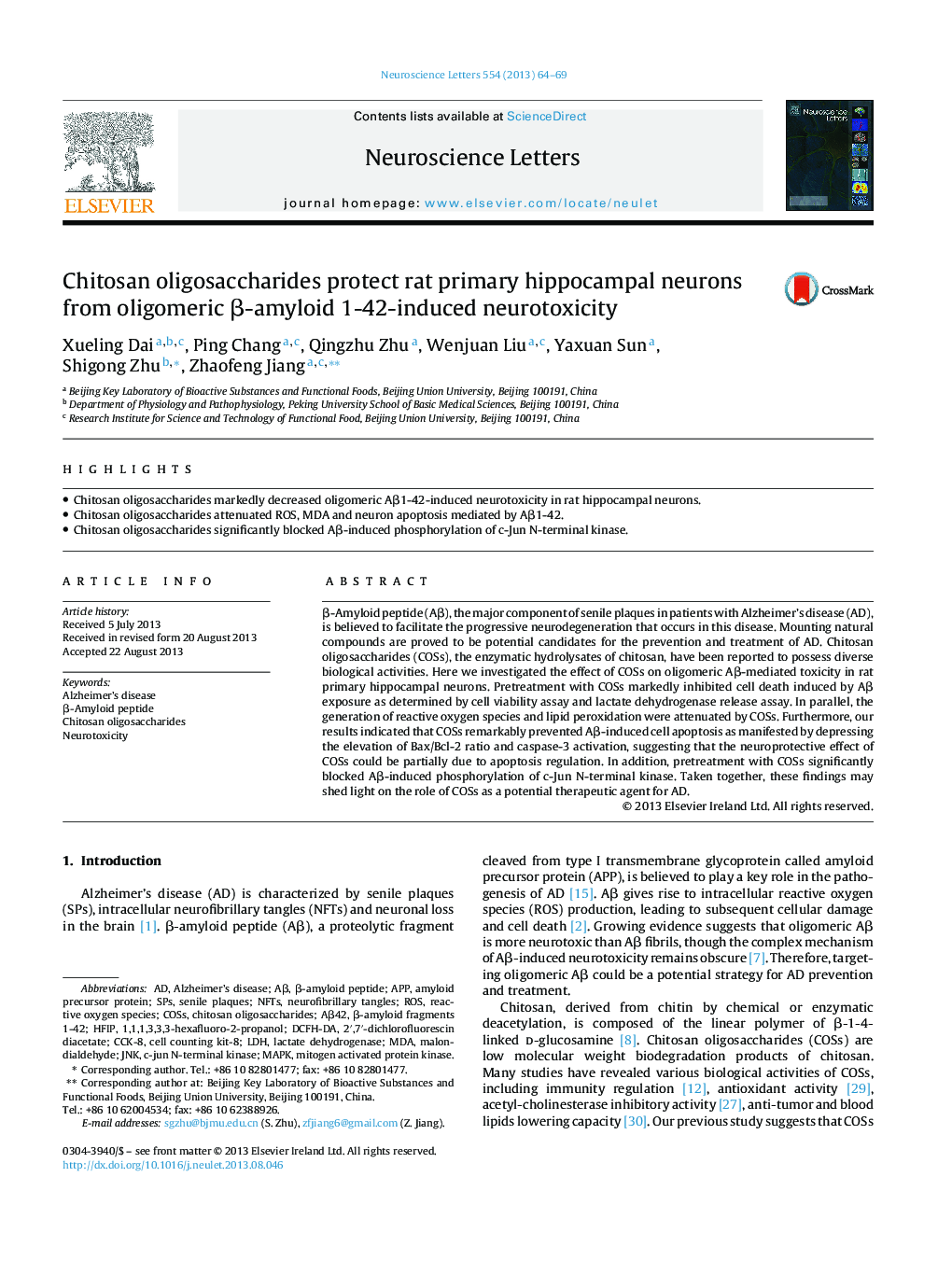| Article ID | Journal | Published Year | Pages | File Type |
|---|---|---|---|---|
| 4343956 | Neuroscience Letters | 2013 | 6 Pages |
Abstract
β-Amyloid peptide (Aβ), the major component of senile plaques in patients with Alzheimer's disease (AD), is believed to facilitate the progressive neurodegeneration that occurs in this disease. Mounting natural compounds are proved to be potential candidates for the prevention and treatment of AD. Chitosan oligosaccharides (COSs), the enzymatic hydrolysates of chitosan, have been reported to possess diverse biological activities. Here we investigated the effect of COSs on oligomeric Aβ-mediated toxicity in rat primary hippocampal neurons. Pretreatment with COSs markedly inhibited cell death induced by Aβ exposure as determined by cell viability assay and lactate dehydrogenase release assay. In parallel, the generation of reactive oxygen species and lipid peroxidation were attenuated by COSs. Furthermore, our results indicated that COSs remarkably prevented Aβ-induced cell apoptosis as manifested by depressing the elevation of Bax/Bcl-2 ratio and caspase-3 activation, suggesting that the neuroprotective effect of COSs could be partially due to apoptosis regulation. In addition, pretreatment with COSs significantly blocked Aβ-induced phosphorylation of c-Jun N-terminal kinase. Taken together, these findings may shed light on the role of COSs as a potential therapeutic agent for AD.
Keywords
DCFH-DAMDACOSSAβ42NFTsHFIPAPPAβCCK-8JnkSPS1,1,1,3,3,3-hexafluoro-2-propanol2′,7′-dichlorofluorescin diacetatec-Jun N-terminal kinaseMAPKROSChitosan oligosaccharidesAlzheimer's diseaseNeurotoxicitycell counting kit-8senile plaqueslactate dehydrogenaseLDHmalondialdehydeneurofibrillary tanglesamyloid precursor proteinmitogen activated protein kinaseβ-amyloid peptideReactive oxygen species
Related Topics
Life Sciences
Neuroscience
Neuroscience (General)
Authors
Xueling Dai, Ping Chang, Qingzhu Zhu, Wenjuan Liu, Yaxuan Sun, Shigong Zhu, Zhaofeng Jiang,
